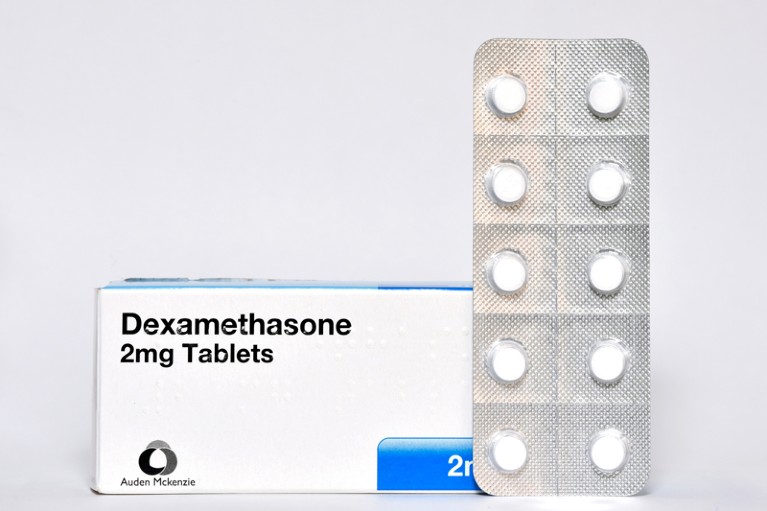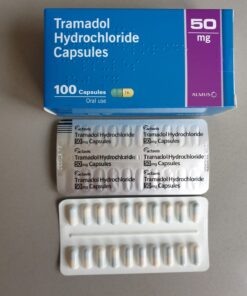Dexamethasone (50 Tablets)
$100.00
The long-term use of dexamethasone may result in thrush, bone loss, cataracts, easy bruising, or muscle weakness. It is pregnancy category C in the United States meaning use should be based on benefits being predicted to be greater than risks.
Dexamethasone: A Comprehensive Guide to Uses, Benefits, and Side Effects
Dexamethasone tablets are a powerful corticosteroid medication used to reduce inflammation in a variety of medical conditions. It has become a cornerstone treatment in managing diseases ranging from severe allergic reactions to certain cancers. In this article, we will explore the key aspects of dexamethasone, including its uses, benefits, side effects, and what you should know if prescribed this medication.
What is Dexamethasone Tablets?
Dexamethasone is a synthetic corticosteroid that mimics the effects of cortisol, a natural hormone produced by the adrenal glands. It works by reducing the immune system’s response to inflammation, thus helping to alleviate swelling, redness, and pain associated with various conditions.
Uses of Dexamethasone
Dexamethasone is a versatile medication used to treat numerous health conditions, including:
- Allergic reactions: Severe allergies, including anaphylaxis, can be treated with dexamethasone to reduce swelling and prevent further immune reactions.
- Arthritis: For rheumatoid arthritis and other inflammatory joint conditions, dexamethasone helps to manage pain and reduce inflammation.
- Cancer treatment: In cancer therapy, dexamethasone is often used to mitigate the side effects of chemotherapy, reduce brain swelling caused by tumors, and manage certain cancers like multiple myeloma.
- Autoimmune disorders: Conditions such as lupus and Crohn’s disease can benefit from the immune-suppressing effects of dexamethasone.
- Respiratory illnesses: It is frequently prescribed to reduce inflammation in lung diseases like asthma and chronic obstructive pulmonary disease (COPD).
- COVID-19: During the COVID-19 pandemic, dexamethasone gained prominence for its ability to reduce mortality in critically ill patients with severe respiratory complications.
How Does Dexamethasone Tablets Work?
Dexamethasone works by binding to glucocorticoid receptors in the body, altering the gene expression responsible for producing inflammatory molecules. By doing so, it dampens the body’s immune response and reduces inflammation. This makes it highly effective in treating conditions where the immune system is overactive or inflammation is causing tissue damage.
Benefits of Dexamethasone
- Powerful anti-inflammatory effects: Dexamethasone is often more potent than other corticosteroids, making it a preferred choice in severe cases.
- Versatile application: Its ability to treat a wide range of conditions makes it a commonly prescribed drug in many medical fields.
- Fast-acting: In cases of severe allergic reactions or respiratory issues, dexamethasone can provide rapid relief.
- Helps in cancer treatment: Apart from reducing chemotherapy side effects, it also plays a role in shrinking certain tumors.
Side Effects of Dexamethasone Tablets
While dexamethasone is an effective medication, it does come with potential side effects, particularly with long-term use. Common side effects include:
- Weight gain: Dexamethasone can lead to increased appetite and fluid retention, resulting in weight gain.
- Increased blood sugar: Patients with diabetes need to monitor their blood glucose levels as dexamethasone can cause hyperglycemia.
- Osteoporosis: Prolonged use can weaken bones and increase the risk of fractures.
- Mood changes: Some patients report mood swings, anxiety, or depression when on high doses of dexamethasone.
- Suppressed immune system: Because it reduces immune activity, dexamethasone can increase susceptibility to infections.
- Digestive issues: Nausea, stomach irritation, or peptic ulcers may occur with long-term usage.
How to Use Dexamethasone Safely
If your doctor prescribes dexamethasone, it’s essential to follow their instructions carefully. Here are a few tips to ensure safe use:
- Take as directed: Do not increase or decrease your dose without consulting your healthcare provider.
- Regular monitoring: If using dexamethasone long-term, regular check-ups are necessary to monitor for potential side effects like high blood pressure, bone loss, or blood sugar changes.
- Tapering off: Never stop taking dexamethasone abruptly if you’ve been on it for an extended period. Your doctor will likely recommend a gradual reduction in dosage to prevent withdrawal symptoms.
- Watch for infection signs: Since dexamethasone can suppress the immune system, pay close attention to any signs of infection, such as fever or persistent cough, and inform your doctor immediately.
Dexamethasone in COVID-19 Treatment
In 2020, dexamethasone was recognized as a critical treatment for patients with severe COVID-19. A major clinical trial demonstrated that this corticosteroid reduced deaths by up to one-third in ventilated patients. It works by dampening the excessive inflammatory response triggered by the virus in critically ill patients, helping to prevent further lung damage and respiratory failure.
Conclusion
Dexamethasone is a potent and versatile corticosteroid that is crucial in managing a wide range of inflammatory and autoimmune conditions. Its benefits in treating allergies, respiratory illnesses, arthritis, and even severe COVID-19 symptoms have made it a widely prescribed medication. However, like all powerful drugs, it should be used under strict medical supervision to avoid potential side effects, especially with long-term use.
If you or a loved one have been prescribed dexamethasone, ensure you fully understand its benefits and risks. Always communicate openly with your healthcare provider to achieve the best possible outcome.
Be the first to review “Dexamethasone (50 Tablets)” Cancel reply
Related products
Pills
Pills
Pills















 WhatsApp us
WhatsApp us
Reviews
There are no reviews yet.